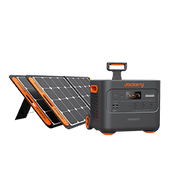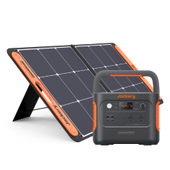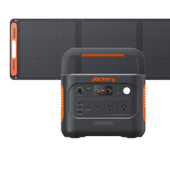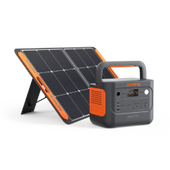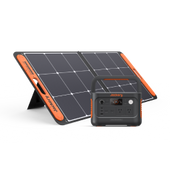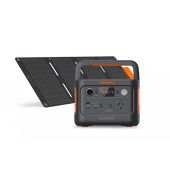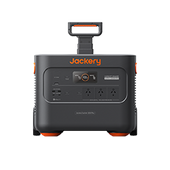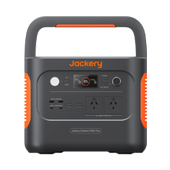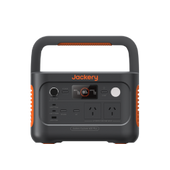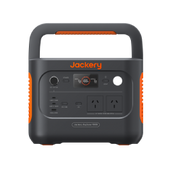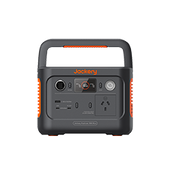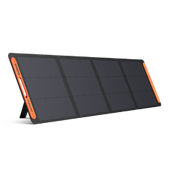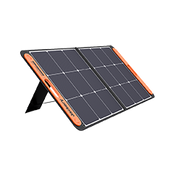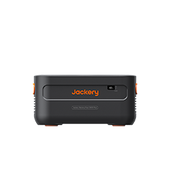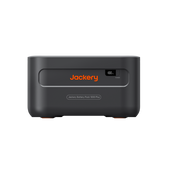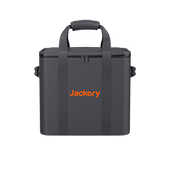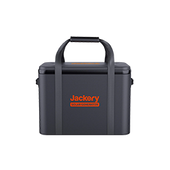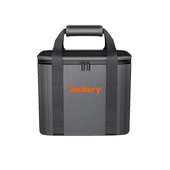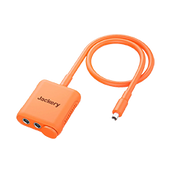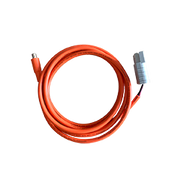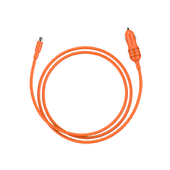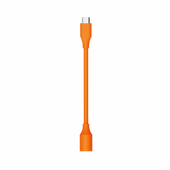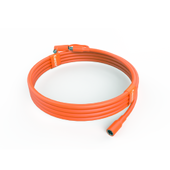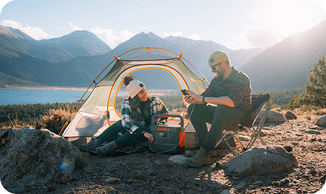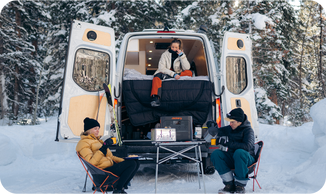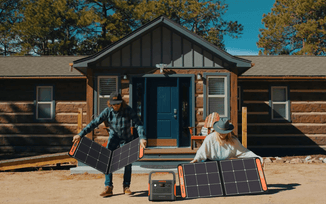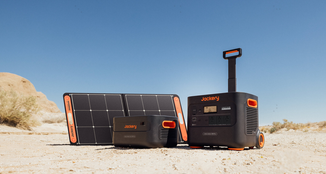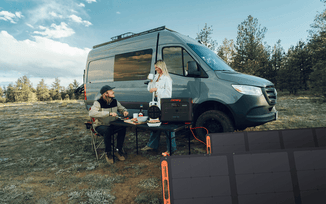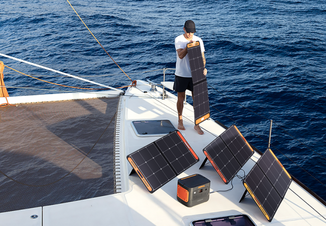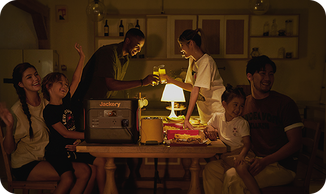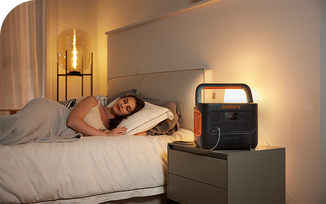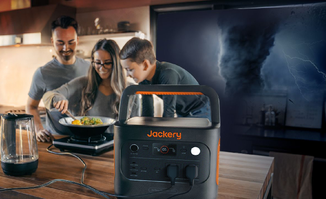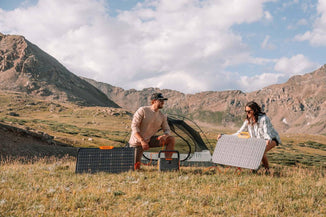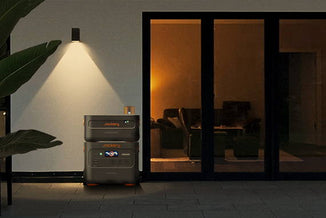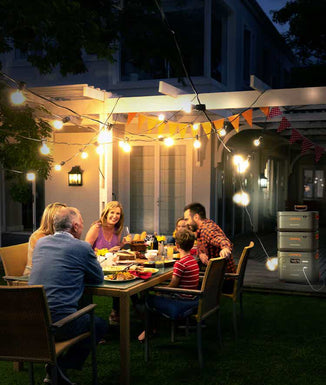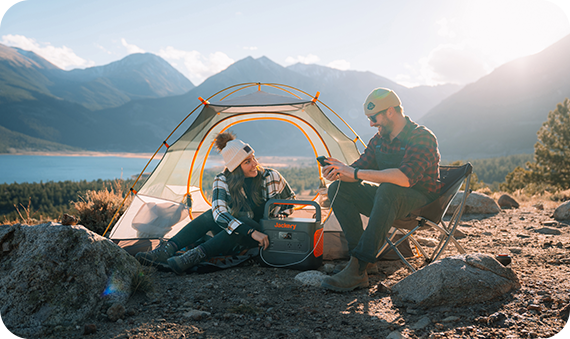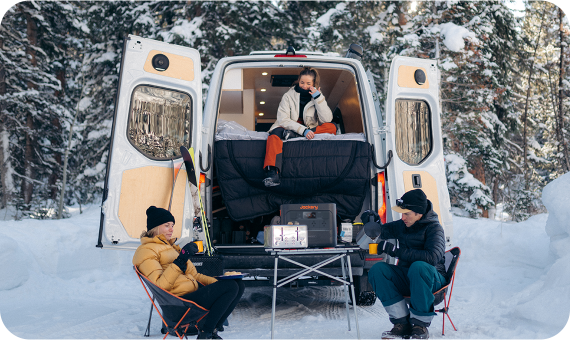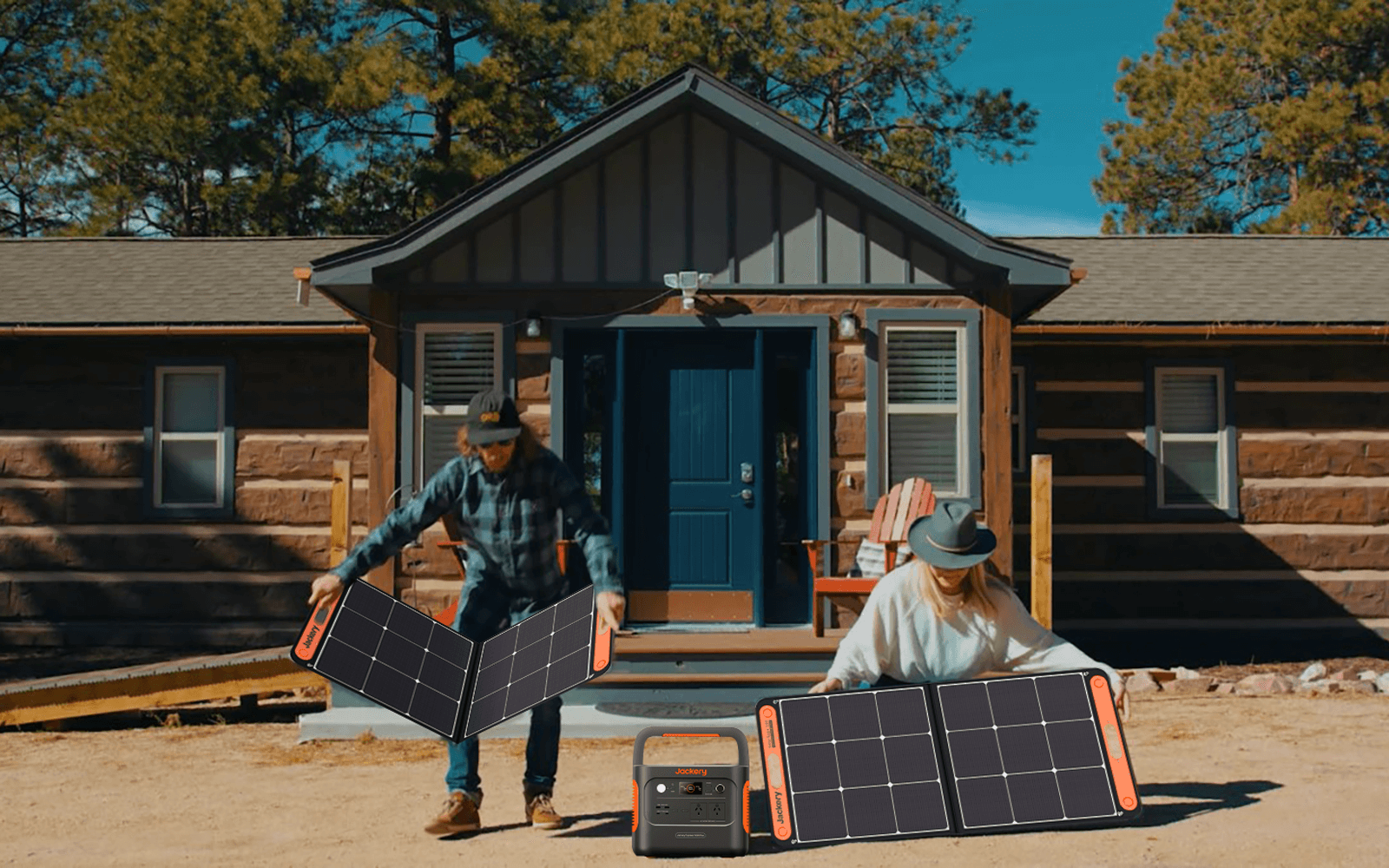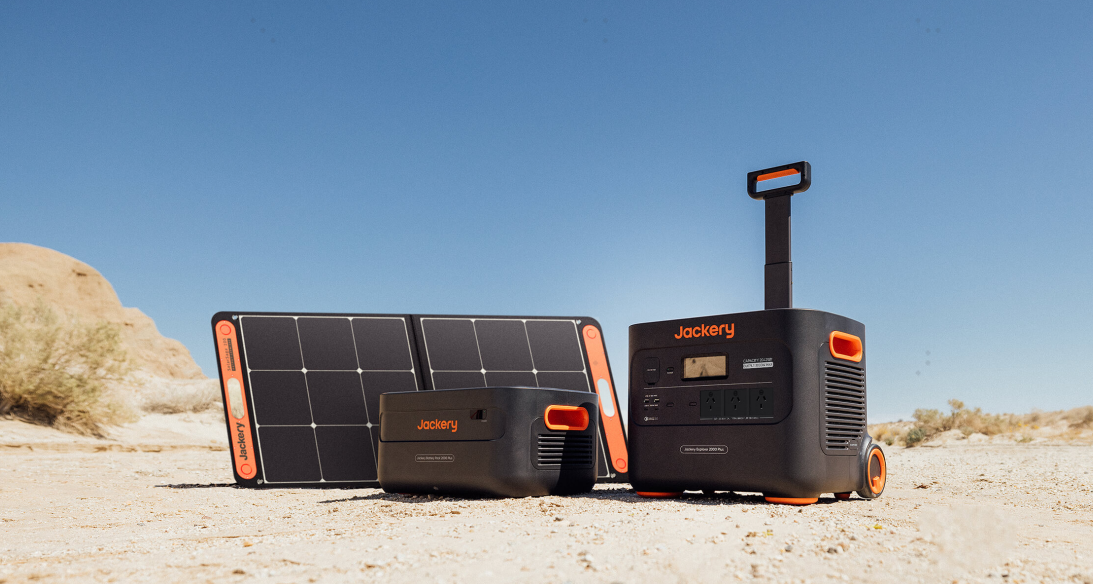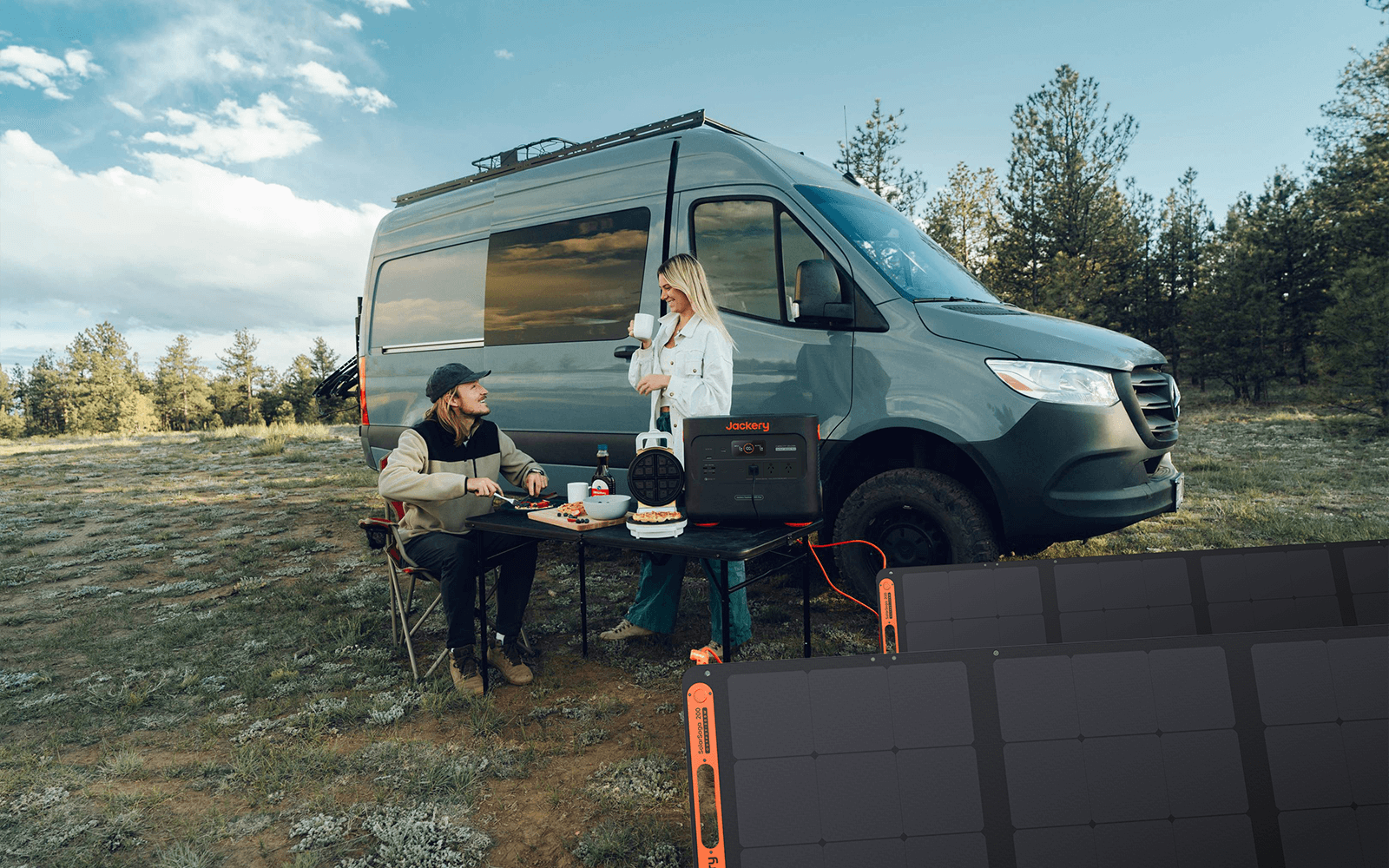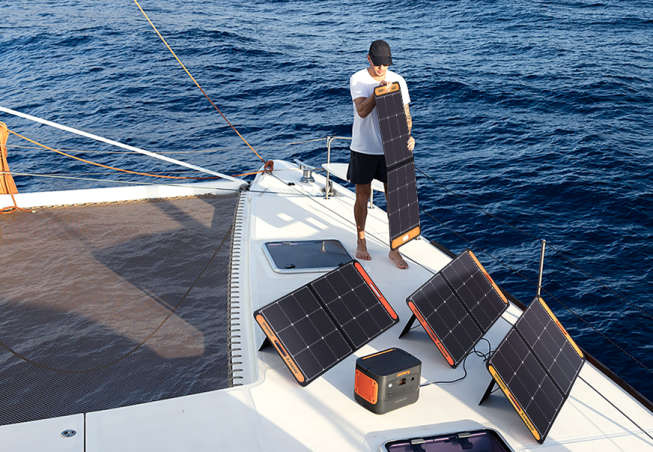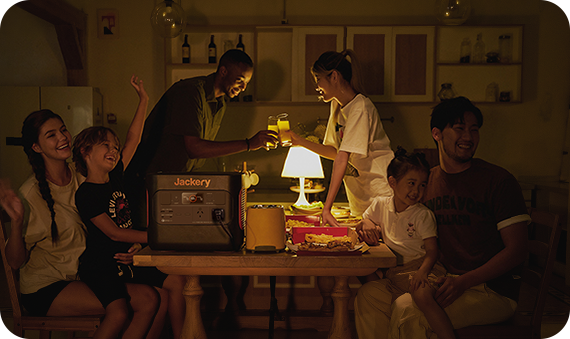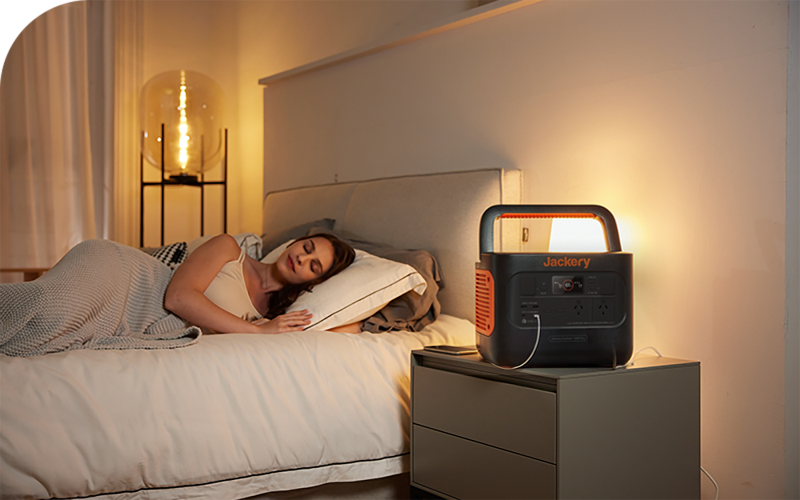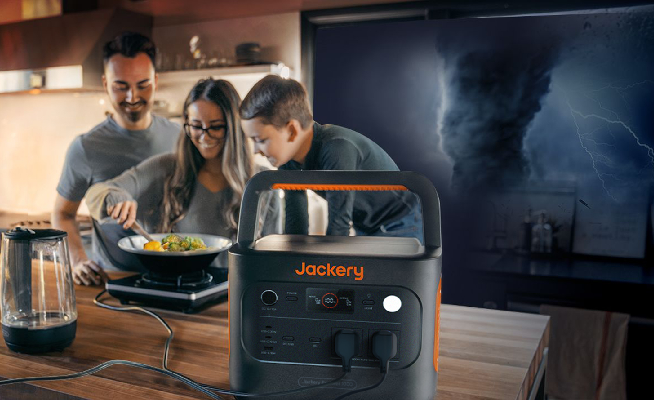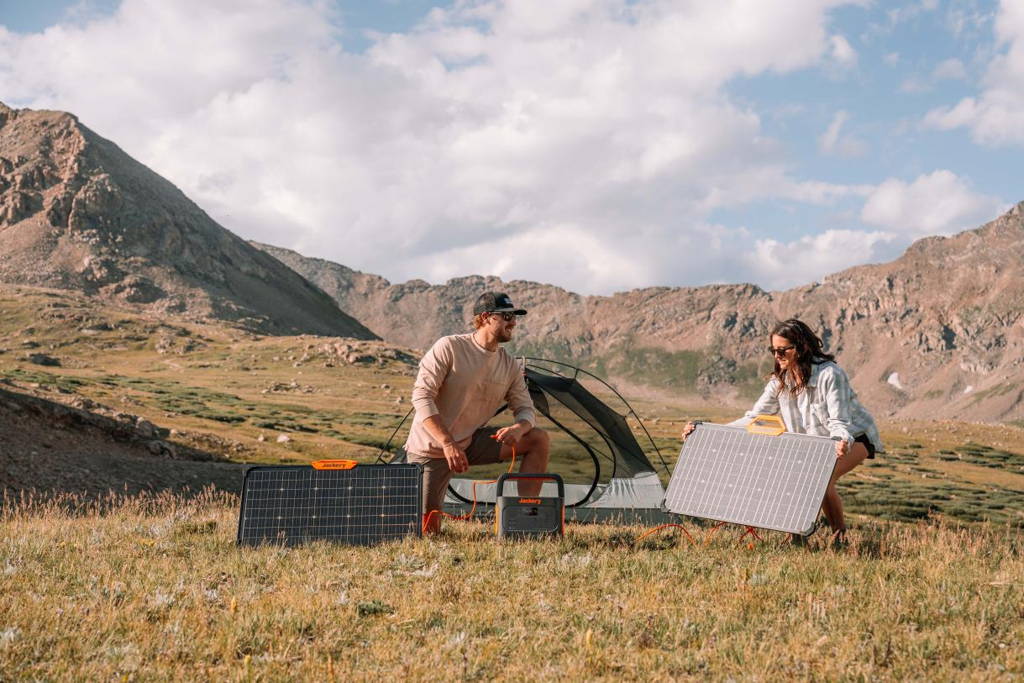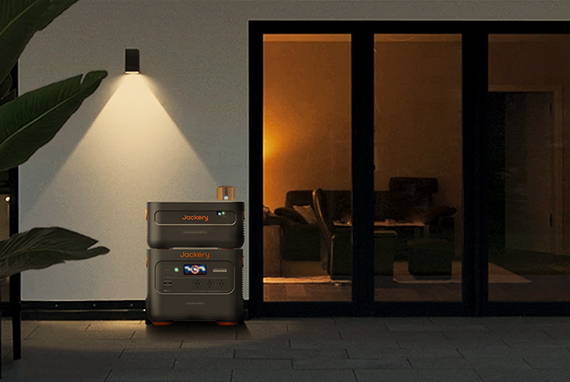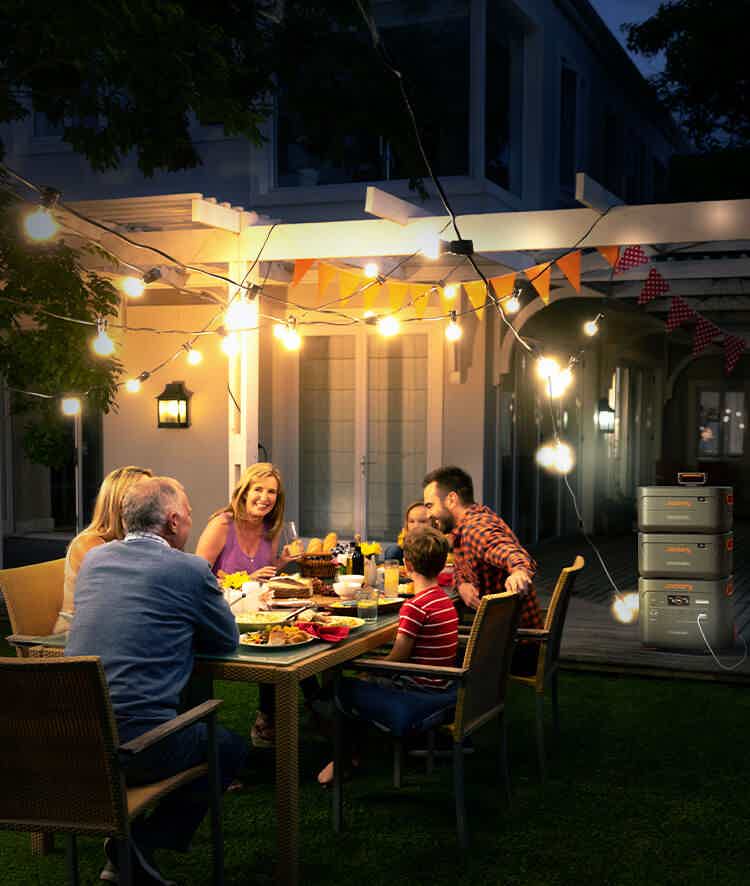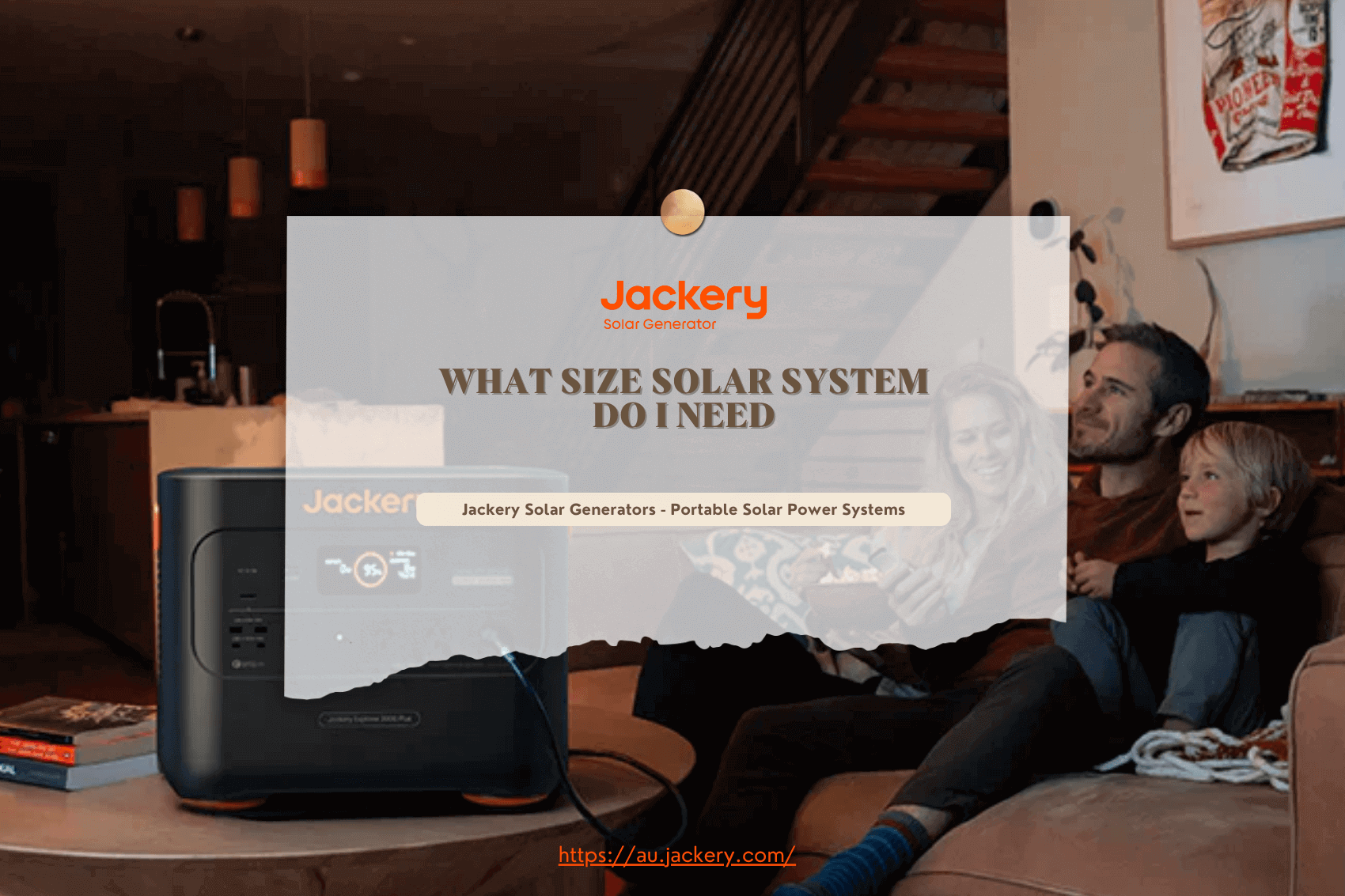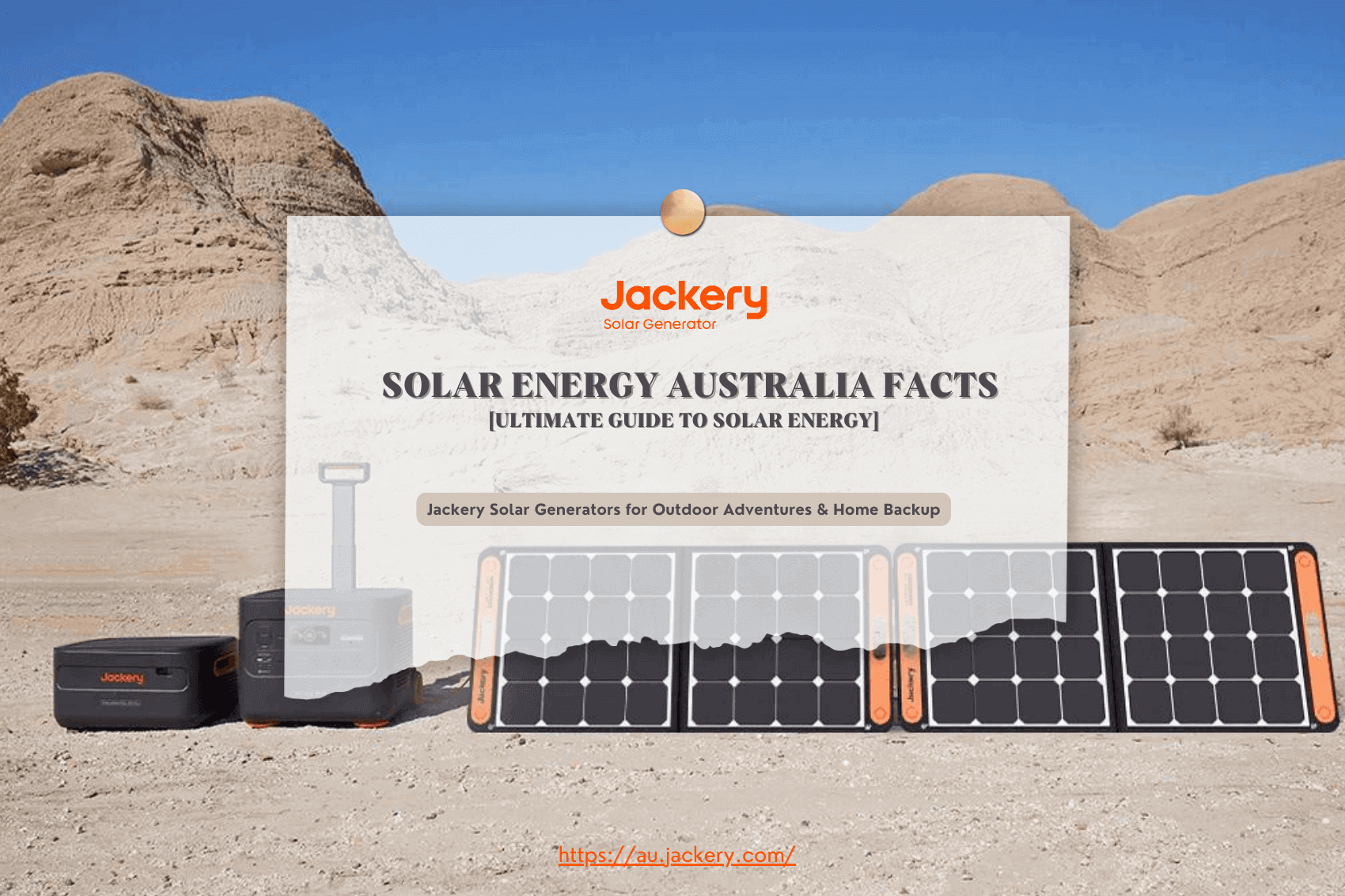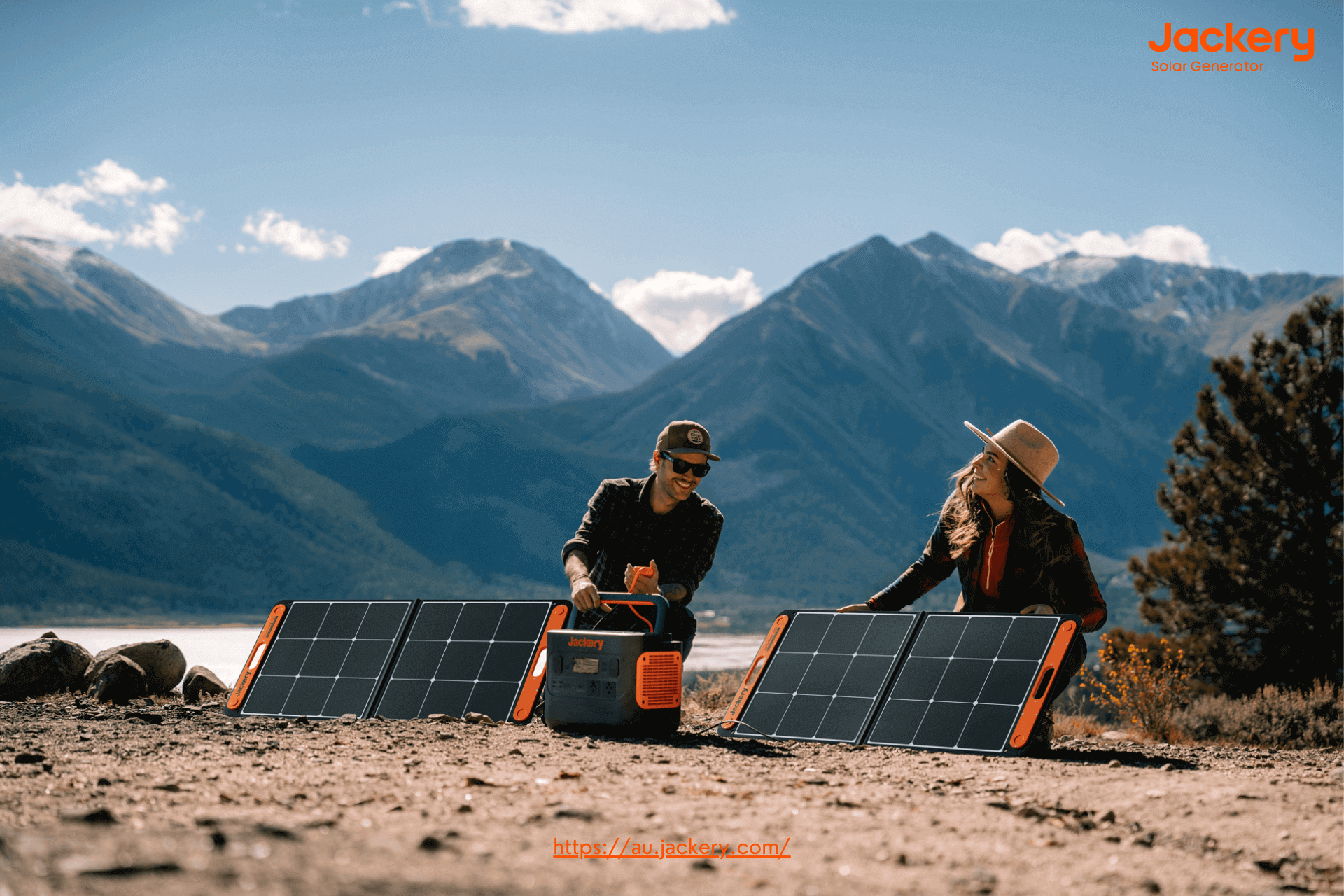|
Key Takeaways: |
|
• In electrical enclosures, an IP rating is a code that categorises and scores the level of protection against solid objects. • There needs to be a uniform IP rating system so buyers and users can be sure how safe it is to use certain electrical or mechanical items. • You can determine what each number in a standard IP code means in an IP chart or table. • We compare the IP65, IP66, IP67, and IP68, and their abilities for waterproofing increase as the numbers increase. • You should choose a Jackery SolarSaga 100W (IP65) or SolarSaga 80W (IP68) solar panel for your outdoor adventures since they are waterproofing. |
What Is An IP Rating?
"IP Rating" stands for "Ingress Protection Rating." The International Electrotechnical Commission set this standard measurement.
In electrical enclosures, an IP rating is a code that categorises and scores the level of protection against solid objects like hands and fingers, dust, accidental contact, and water.
Most of the time, the IP rating is shown by the word "IP" followed by two numbers. As the first number shows, the amount of protection the housing gives against dangerous parts and solid foreign objects getting in is shown. From 0 to 6 is the value range. The second number, which ranges from 0 to 9K, tells you how well the enclosure protects against dangerous water entering.
Regarding solar technology and incredibly portable solar options like Jackery Solar Panels, the IP rating is more than just a technical term. It shows how well the product can handle problems in the environment.
Solar panels are open to various weather conditions, from dust and sand in dry areas to rain and snow in mild areas. With the correct IP rating, these panels can handle this without losing usefulness or efficiency.
Why Do We Need An IP Rating?
There needs to be a uniform IP rating system so buyers and users can be sure how safe it is to use certain electrical or mechanical items in certain places and situations.
Compared to less specific marketing terms like "waterproof," which don't always give a clear picture of where and how well something can keep water out, an IP number is meant to provide a much more detailed picture.
We will learn more about IP ratings later in this guide. Each number in an IP rating tells us more about the exact amount of protection or resistance the item can be expected to provide.
How Does An IP Rating Measure?
As noted briefly above, IP rating denotes three key metrics:
- Resistance to ingress, accidental or otherwise, by the user
- Resistance to ingress from foreign bodies (dust, dirt, etc.)
- Resistance to moisture ingress
An IP grade usually has two numbers and sometimes a letter that tells you about specific materials, risks, or testing situations. A grade like this is often written as "IP43," "IP67," or something similar.
The first digit is between 0 and 6, showing how well the device protects against solid objects (like the user) and possibly harmful particles like dust or dirt.
An IP rating is between 0 and 9 after the first digit. This number tells you how well the product protects against water getting in at different levels of contact or immersion, angles, depths, and pressures.
Sometimes, an extra letter may be added to the end of an IP number, like "IP67M." This case shows that the product is approved to resist certain materials or hazards, like oil or high voltages, or that it was tested in a particular situation, like moving water.
In most everyday situations, though, this only happens sometimes. Contact our support team to learn more about any extra letters you see after an IP code. The following parts will go into more detail about what each number in these codes means.
Understanding IP Ratings Table & Chart
You can find out what each number in a standard IP code means in the table below. This entry protection chart will help you understand what risks and situations a particular item's mechanical or electrical parts should be protected against and how well they should be protected.
First Digit (Solid Protection):
|
First Digit |
Level of Protection |
|
0 |
There is no protection against any size solid. |
|
1 |
Protection against solids more significant than 50mm, such as a hand. |
|
2 |
Protection against solids larger than 12.5mm, such as the fingers. |
|
3 |
Protection against solids more significant than 2.5mm, such as some tools. |
|
4 |
Protection against solids more significant than 1mm, like small wires. |
|
5 |
Dust protected. It is not entirely dusttight but has enough protection to prevent harm. |
|
6 |
Dust tight. Complete protection against dust entry. |
Second Digit (Liquid Protection):
|
Digit |
Level of Protection |
|
0 |
No protection. |
|
1 |
Protection against the vertical falling droplets. |
|
2 |
It protects water droplets deflected at an angle of up to 15° from the vertical direction. |
|
3 |
It protects against spray at angles of up to 60° from the vertical. |
|
4 |
Protection against water splashing from any direction. |
|
5 |
Protection against low-pressure water jets. |
|
6 |
Protection against high-pressure water jets. |
|
7 |
Waterproofing up to a depth of 1 metre for a specified period. |
|
8 |
Protection against immersion beyond 1m under conditions specified by the manufacturer. |
|
9 |
Protection against close-range high-pressure and high-temperature spray downs. |
Examples Across the Spectrum:
IP23: This rating means the device is safe from solid items more significant than 12.5 mm and water spray.
IP65: This number means it is resistant to dust and water jets and can be used outside.
IP53: IP53: This number means that the device is protected against dust and can handle water spraying, which is typical for some smartphones and tablets.
What Is The Importance of IP Rating in Solar Energy?
Solar panels must deal with many weather conditions, from scorching heat and dust storms to heavy rain and snow. In this case, IP scores become very important because they show how well each solar panel protects against these threats.

Protection Against Solids (First Digit): Solar panels often get dusty, especially ones that are put up in fields or industrial areas. It needs a good IP grade to keep dust out of the system and lower its performance, which means it can protect against solid particles well.
Protection Against Liquids (Second Digit): The second number of the IP grade stands out in places where it rains a lot or for things like floating solar panels. It shows how flexible the device is in response to water, which is essential to keep short circuits and rust from happening.
1. Maintain Efficiency & Longevity
When dust and water build up on the Solar Panel, it can make it much less effective at turning sunlight into power. Dust particles block sunshine, lowering the panel's helpful surface area. Water getting into the panel can also cause electrical problems. With the correct IP rating, these things won't be able to affect how well the panel works.
Investing in solar panels will pay off over many years. How long they live is directly related to how well their shells protect them from the elements. Manufacturers ensure that their solar goods last long by following strict intellectual property rules. This means they can be replaced or maintained less often.
2. Implications & Applications
In the real world, IP ratings have a vast range of effects on solar energy systems, from small home installations to big solar farms.
Residential Solar Installations: If a homeowner chooses Solar Panels with the correct IP rating, they won't have to worry as much about damage from the weather and care costs. It's to ensure that their renewable energy source stays stable over time.
Large-scale Solar Farms: High IP ratings are even more critical in solar farms, where maintaining all the cells can be challenging because there are so many of them. As long as the weather doesn't change, they ensure the farm's general efficiency doesn't go down. This guarantees a steady output and return on investment.
Innovative Solar Technologies: As people try to make solar technologies that are more durable, like floating solar cells, they need to be protected from water. A good IP rating is helpful not only in this case but also in the future; the projects must be able to go forward and be successful.
3. More Considerations
Even though high IP scores are good, they come with their problems and things to think about:
Cost: Solar panels that have higher IP ratings cost more. Stakeholders must find the best balance between the need for security and the available budgets and the safest and least expensive solutions.
Heat Management: Closing solar cells all the way to get a high IP rating might make it harder for heat to escape. To keep the speed up, designers must ensure panels can handle heat well.
Comparing Different Levels of IP Ratings
Figuring out which electronic devices, like solar panels, can work in different settings requires a deep understanding of the small changes between IP ratings like IP65, IP66, IP67, and IP68.
This talk details why IP grades are essential, the complicated differences between IP65, IP66, IP67, and IP68, and how these slight differences significantly affect how resistant a product is to dust and water.
IP65: Water Resistant
Following the international standard IP65, an electrical enclosure is completely sealed against dust and light water spray.
Waterproof things can handle being outside in bad weather without getting damaged or losing their ability to do their job. IP65 only talks about being able to hold dust and some water. Thunder, hail, sunlight, wind, and other types of bad weather are not taken into account by IP65 grades.
IP66: Water Resistant Against Powerful Jets
IP66 enclosures are made to protect well against the harshest conditions and can be used outside in various situations.
The first number in the rating, a 6, means it entirely blocks solids from getting in along with dust. The second number is also a 6, which means it keeps water out from solid sources like ocean waves, heavy rain, and pressurised water jets.
IP67: Waterproofing for Temporary Immersion
Regarding solid protection, IP67-rated equipment is the same as IP68-rated equipment regarding dust protection. Safety from liquids is the main difference. Equipment with an IP67 rating can handle being submerged in water quickly.
Most of the time, the standard sizes for being submerged in water are 30 minutes at a depth of 4 metres. While this level of protection is suitable for places where equipment might get wet by mistake, it could always be better to use equipment over time.
IP68: Waterproofing
The change from IP67 to IP68 may not seem like a big deal initially, but it protects against water much better. Even though IP68 also means that the device is dustproof, IP67 is different because it can handle being submerged in water for more than 1 metre and 30 minutes straight.
With an impressive 25% efficiency, you can turn the sun's rays into pure energy and get the most out of solar power. Jackery Portable Power Stations can store the solar power used to charge your devices.
Jackery Solar Panels Explained
Because Jackery Solar Panels are monocrystalline, they have a higher IP rating (IP68) and work well. Because of the single-crystal silicon, electrons can move around more easily. This means that the panel gives the charged gadget more power.
With an impressive 23.7% efficiency, you can turn the sun's rays into pure energy and get the most out of solar power. With the help of Jackery Portable Power Stations, solar energy can be stored in a battery power station and used to charge all of your devices.

Jackery SolarSaga 100W Solar Panel
The SolarSaga 100W solar panel has two kickstands that can be positioned securely on any surface. This solar panels can absorb sunlight for your Jackery Portable Power Station in just a few seconds. The TPE rubber handle enables easy transport during off-grid excursions.
Covered in monocrystalline silicon solar cells, the solar panel employs multilayered cell technology to generate energy from the sun. It outperforms conventional panels by up to 23% in conversion efficiency.
The ETFE-laminated case is robust enough to extend the solar panel's service life. The IP65 water resistance will protect against water splashes. The pocket's zippers can contain power cords and conceal the power port.
Product Specs
IP Rating: IP65
Power: Peak Power 100W, Power Voltage: 18V, Power Current: 5.55A
Dimensions: Folded: 24x 21 x1.4 in, Unfolded: 48x21x0.2 in, Weight: 10.33 lbs
Output Ports: Solar Saga 100W features 1* USB-A(5V, 2.4A) output port and 1* USB-C(5V,3A) output port to charge two small devices directly.
Design: This monocrystalline Jackery SolarSaga 100W Solar Panel converts solar energy to renewable energy. It is suitable for outdoor activities and power outages due to its 23.7% solar conversion efficiency.
Compatible With: Explorer 1000 Pro + 4*SolarSaga 100W = 1292Wh, Explorer 1000 Pro + 3*SolarSaga 100W = 1326Wh, Explorer 1000 Pro + 2*SolarSaga 100W = 1190Wh, Explorer 1000 Pro + 1*SolarSaga 100W = 1147.5Wh, Explorer 500 + 1*SolarSaga 100W = 639Wh

Jackery SolarSaga 80W Solar Panel
The Jackery SolarSaga 80W solar panel has a high generator efficiency of 25%. Both surfaces of the upgraded solar panel generate electricity. Using extra-white glass with a transmittance rate of 92% on the rear side increases power generation efficiency. The reflective purse is designed to reflect additional solar energy.
Certified IP68 is impermeable and dustproof against extreme weather conditions. A two-meter extension cable is designed for extended charging distances, enabling outdoor use. Jackery power stations are entirely compatible with the brand-new 80W Solar Panels. You can use up to 12 pieces of 80W solar panels concurrently.
The solar panel is incredibly durable with 2.8mm low iron complete toughened glass and a unique corner design that adds strength.
Product Specs
IP Rating: IP68
Power: Peak Power 80W, Power Voltage: 22V, Power Current: 3.6A
Dimensions: Folded: 35.67x20.79x1.06 in, Unfolded: 35.67x20.79x1.06 in, Weight: 10.33 lbs
Accessories: It contains a 1*2-meter extension cable, 1*user manual, and 1*carrying case for solar panels.
Design: Both surfaces of the upgraded solar panel generate electricity. The backside solar cell absorbs reflective and diffused sunlight, which increases the conversion rate by 25%—the PV product in the world to receive the prestigious IEC TS63163 certification from TÜV SÜD.
Compatible With: Explorer 1000 Pro + 4*SolarSaga 80W = 1305.6Wh, Explorer 1000 Pro + 2*SolarSaga 80W = 1224Wh, Explorer 1000 Pro + 1*SolarSaga 80W = 1156Wh, Explorer 500 + 1*SolarSaga 80W = 629.8Wh, Explorer 300 Plus + 1*SolarSaga 80W = 288Wh

How to Maintain The IP Levels of Solar Panels?
Solar panels need to keep their IP rating for several vital reasons. When dust and water enter solar cells, they work less well and last less long. These issues can be avoided by ensuring IP levels are kept up.
Water can short out electricity wires and pose other safety risks. There is an IP level of care that makes sure the panel will always work safely. Many warranties and insurance policies say that goods must be used and maintained following the manufacturer's instructions, which may include IP class compliance.
Regular Cleaning: Dust and dirt can get in the way of seals and airflow, lowering the solar panel's IP rating. This can be avoided by cleaning it often with a light cleaner and a soft brush or cloth. It would be best not to use high-pressure cleaners because they can damage the seal and lower the IP level.
Check Seals & Enclosures: Regularly look for signs of wear on the seals and housings of solar panels. Over time, rubber gaskets and seals wear out, especially in harsh environments. To keep the IP grade, replace any broken parts right away.
Check Water Intake: Check for signs of floods after it rains a lot or after you clean up. This could mean that the IP level has been hacked. If water is found, you should get it fixed or replaced by a professional.
Avoid Physical Break: Property damage can drop IP levels by letting dust and water in. Pay attention to where you put your solar panels and ensure they won't get damaged by things like animals, people, or other objects.
IP Rating FAQs
The following are the most frequently asked questions about the IP rating:
- 1. What IP ratings are waterproof?
Most people agree that ratings of IP65, IP66, and IP67 mean something is "waterproof" for most uses. However, a common misunderstanding about weatherproofing is that things that will be used outside for a long time need the highest IP ratings for water protection, like IP68 or IP69.
- 2. Is IP44 suitable for outdoor use?
Anything with an IP rating of 44 to 65 can be used inside and outside. However, anything less than IP44 should only be used inside. While IP44 outdoor lights are safe to use outside and can handle rain, they shouldn't be put in water under a lot of pressure, like from a jet wash.
- 3. What is the IP rating in Australia?
The Ingress Protection Rating, or the International Protection Rating, tells you how well electrical equipment protects against things getting inside it. When picking a light fixture in a damp place, like a bathroom or outside, the IP rating can help you decide which one to get.
- 4. Is IP67 waterproof OK for swimming?
On the other hand, an IP67 or IP68 grade means the device can be submerged in water. For example, water is present when you swim or go to the beach. Having IP67 means that a gadget can handle water up to 3 feet deep for up to 30 minutes.
- 5. Which is better, IP44 or IP65?
The higher the rating, the more likely your lights will work in snow, wind, and heavy rain. This means that the IP65 rating for security works better than the IP44 rating. This proves the lights can be used in any weather and year.
- 6. What IP rating do I need for outdoor?
An IP rating of 44 or higher is usually enough for general garden lights like outdoor walls or path lights. These lights can handle solid items bigger than 1 mm and water splashes from all sides, so they're great for everyday use in the garden.
Final Thoughts
The IP rating system is an excellent place to start when choosing electrical tools, especially for outdoor and solar energy uses. It measures how well tools can handle water, dust, and other environmental factors. You can choose a solar product like Jackery Solar Panels with higher IP levels.

